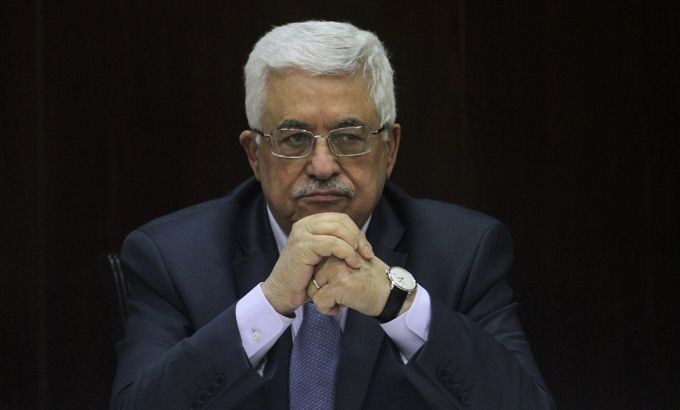Obama welcomes Israeli-Palestinian talks
John Kerry names former US ambassador to Israel Martin Indyk as the peace envoy overseeing potential negotiations.

US President Barack Obama whas elcomed the imminent start of talks between Israel and the Palestinians, but urged both sides to approach them with honesty.
“The most difficult work of these negotiations is ahead, and I am hopeful that both the Israelis and Palestinians will approach these talks in good faith,” he said on Monday.
Obama thanked his own top diplomat, Secretary of State John Kerry, for organising the talks, which were to begin later Monday in Washington with an initial exchange between top negotiators.
| Israel’s chief negotiator, Tzipi Livni, speaks while at the UN |
“I am pleased that Prime Minister Netanyahu and President Abbas have accepted Secretary Kerry’s invitation to formally resume direct final status negotiations and have sent senior negotiating teams to Washington for the first round of meetings,” Obama said.
“This is a promising step forward, though hard work and hard choices remain ahead.”
Israeli and Palestinian teams arrived in Washington earlier on Monday for preliminary talks towards a formal re-opening of negotiations after years of stalemate.
US Secretary of State John Kerry held a press conference in which he named Martin Indyk, the former US ambassador to Israeli, as the new Middle East peace envoy.
Indyk is a veteran of US involvement in the Israeli-Palestinian conflict.
He was a senior official in the Clinton administration, which oversaw a failed summit in 2000 after which violence erupted in Israel and Palestinian territories.
‘Difficult process’
Kerry also said that many difficult choices lie ahead during the talks and that he would seek to establish “reasonable compromises” between the two sides.
“It is no secret this is a difficult process. If it were easy, it would have happened a long time ago,” Kerry said.
“It is no secret, therefore, that many difficult choices lie ahead for the negotiators and for the leaders as we seek reasonable compromises on tough, complicated, emotional and symbolic issues,” Kerry told reporters.
Gill Hoffman, political correspondent for The Jerusalem Post, told Al Jazeera, “We’ve seen over the last few months Netanyahu is sounding more like Livni, taking a more dovish approach.”
“Israel has already gone far [to get to the table], it already withdrew from every inch of the Gaza Strip.”
Al Jazeera’s Rosiland Jordan, reporting from Washington, said Indyk has been involved in previous talks, and someone “both the Israelis and Palestinians trust.”
“Both sides are willing to give Indyk a chance to push them for the long term prospect of peace for their people,” our correspondent said.
“Many of the players taking part are well known to each other.”
The Israelis will be represented by Livni and Yitzhak Molcho, and the Palestinians will be represented by chief negotiator Saeb Erekat and Mohammad Shtayyeh.
Kerry has long seen the talks as a top priority as he believes without a solution, peace in the wider region cannot be restored.
Israel’s chief negotiator Tzipi Livni said early on Monday as she left for Washington that talks would be complex and that she was leaving “cautiously but also with hope”.
|
|
| Israel to release over hundred Palestinian prisoners |
Palestinian negotiators also departed after the Israeli cabinet acceded to Palestinian demands and agreed to release 104 Palestinian prisoners, some of whom have been jailed for decades.
The Israeli president, Shimon Peres, praised the resumption of talks, describing it as a “special day”.
“The Middle East is in a stormy situation. We hope the Middle East will overcome its storm and land in a port of peace,” he said while on a visit to Latvia.
Terms of talks
On Monday, Palestinian President Mahmoud Abbas sought to lay out his vision for the talks, asserting that no Israeli settlers or border forces should be allowed to remain in a future Palestinian state, and reiterated the Palestinian position that the 1967 borders were non-negotiable.
Abbas’s firm statements on Monday appeared to challenge mediator John Kerry’s hopes that the terms of the talks be kept secret.
“In a final solution, we would not see the presence of a single Israeli – civilian or soldier – on our lands,” Abbas told Egyptian journalists in Cairo where he met Egypt’s interim president Adli Mansour.
“An international, multinational presence like in Sinai, Lebanon and Syria – we are with that,” he said, referring to United Nations peacekeeping operations in those places.
Israel has previously said it wants to maintain a military presence in the occupied West Bank at the border with Jordan to prevent any influx of weapons that could be used against it.
On the future of Jewish settlements on the West Bank and the status of Jerusalem – among the most contentious issues facing the two sides – Abbas appeared firm in his stance.
“We’ve already made all the necessary concessions,” he said. “East Jerusalem is the capital of the state of Palestine …if there were and must be some kind of small exchange [of land] equal in size and value, we are ready to discuss this – no more, no less,” he said.